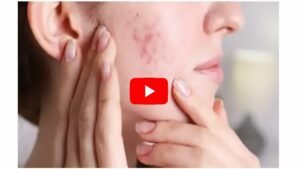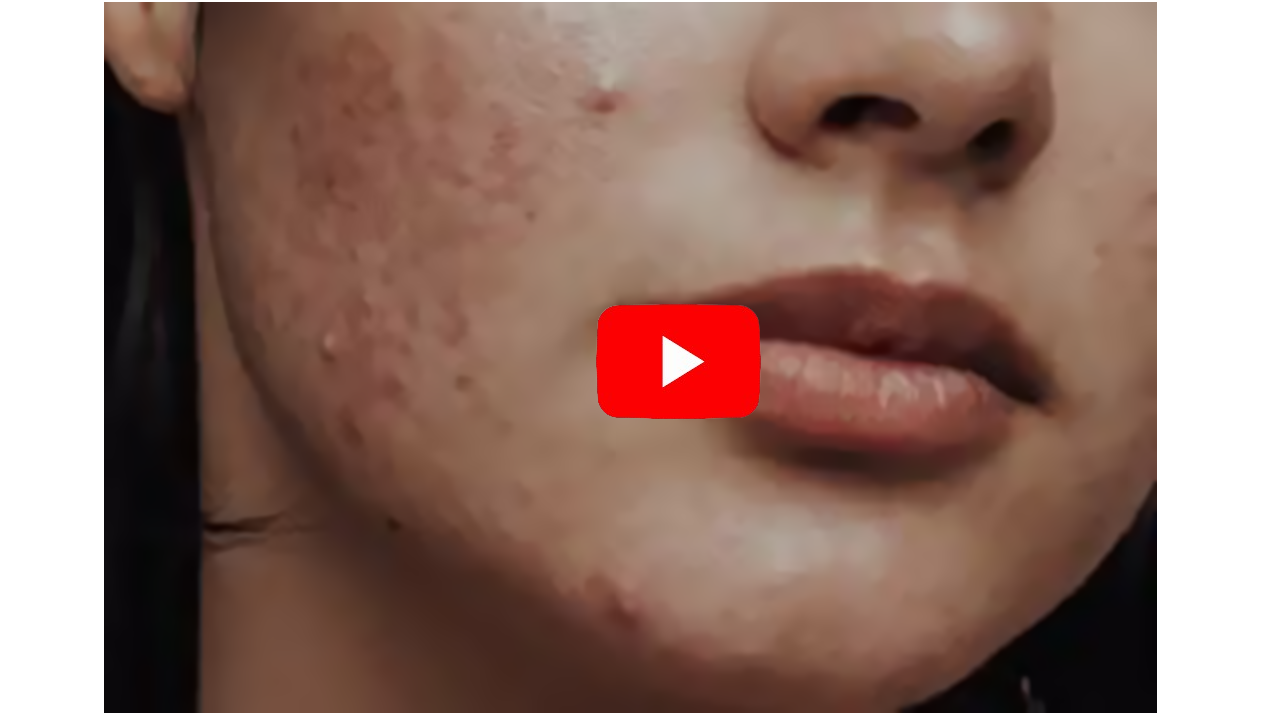Understanding Hormonal Acne and Its Impact on Skin Health
Hormonal acne is a prevalent skin condition that affects a significant portion of the population, particularly during periods of hormonal fluctuations such as puberty, menstrual cycles, pregnancy, and menopause. Unlike common acne caused by excess oil, bacteria, or poor hygiene, hormonal acne is primarily driven by imbalances in hormone levels, especially androgens like testosterone and dihydrotestosterone (DHT). These hormones stimulate the sebaceous glands in the skin to produce more sebum, which can clog pores and create an environment conducive to inflammation and bacterial growth. The result is the formation of cystic, pustular, or nodular lesions that can be painful and persistent.
The impact of hormonal acne extends far beyond the physical symptoms. It can significantly affect an individual’s self-esteem, mental health, and overall quality of life. Many sufferers experience feelings of frustration and helplessness, especially when traditional treatments yield limited results. The emotional toll can lead to social withdrawal, anxiety, and depression. While dermatological treatments such as topical retinoids, antibiotics, and hormonal therapies are often prescribed, they may come with side effects or may not be suitable for everyone, prompting many to seek natural, supplementary options. Understanding the root causes and exploring holistic strategies can empower individuals to take control of their skin health and pursue lasting relief.
Best Vitamins for Skin: Essential Nutrients to Support Your Skin’s Health
Vitamins are fundamental to maintaining healthy skin, especially when addressing hormonal acne. They support cellular processes, bolster the immune response, and combat oxidative stress, which can exacerbate skin conditions. Vitamin A, in particular, is vital for skin cell turnover and repair. Retinoids, derived from Vitamin A, are well-known for their efficacy in reducing acne by preventing clogged pores and promoting healthy skin renewal. They can be used topically or orally under medical supervision to achieve optimal results.
Vitamin C, a potent antioxidant, plays a crucial role in collagen synthesis, which is essential for maintaining skin elasticity and healing damaged skin. It also reduces inflammation and helps protect the skin from environmental damage caused by UV rays and pollution. Vitamin E, another powerful antioxidant, works synergistically with Vitamin C to protect skin cells from oxidative stress, while also promoting hydration and elasticity. B-complex vitamins, particularly B6 and B12, are involved in hormone regulation and can reduce inflammation associated with acne. Adequate intake of these vitamins through diet or supplements creates a solid foundation for healthier, clearer skin, making them an integral part of any comprehensive acne management plan.
Best Supplements for Acne: Targeted Solutions for Clearer Skin
In addition to vitamins, various supplements have gained recognition for their ability to combat acne by addressing its underlying causes—such as inflammation, excess oil production, and hormonal imbalances. Zinc, a trace mineral, is one of the most extensively studied supplements for acne treatment. It possesses anti-inflammatory properties, helps regulate sebum production, and supports immune function, which accelerates skin healing. Zinc’s role in reducing inflammation makes it particularly effective for cystic and inflammatory acne.
Omega-3 fatty acids, primarily found in fish oil, are renowned for their anti-inflammatory effects. They help reduce redness, swelling, and irritation associated with acne lesions. Probiotics, which support gut health, have emerged as a promising approach to managing skin conditions. A balanced gut microbiome can modulate immune responses and reduce systemic inflammation that often worsens acne. Other supplements like saw palmetto, which inhibits the conversion of testosterone to DHT, and DIM (diindolylmethane), which supports estrogen metabolism, are also used to naturally balance hormones and reduce hormonal acne. When considering supplements, it’s essential to evaluate individual needs and consult healthcare professionals to develop a safe, personalized plan.
Hormonal Acne Supplements: Natural Options for Balancing Hormones
Hormonal acne supplements are formulated specifically to target the hormonal imbalances that trigger breakouts. These often contain herbal extracts and nutrients that influence hormone production, metabolism, and regulation. Saw palmetto is a popular supplement that inhibits 5-alpha-reductase, an enzyme involved in converting testosterone into DHT, a hormone associated with increased sebum production and acne. By reducing DHT levels, saw palmetto can help diminish hormonal-driven breakouts.
DIM, derived from cruciferous vegetables such as broccoli and Brussels sprouts, supports estrogen detoxification and helps maintain a healthy hormonal balance. Vitex (chasteberry) has been traditionally used to regulate menstrual cycles and reduce hormonal fluctuations that contribute to acne. Maca root, an adaptogen, helps modulate the endocrine system, improve hormonal resilience, and reduce stress-related hormonal imbalances. It’s vital to approach hormonal supplements with caution and under medical supervision, especially if you are taking other medications or have underlying health issues. When used correctly, these supplements can be powerful allies in a holistic approach to managing hormonal acne naturally.
✅ Struggling with acne? Discover the 2 natural solutions I personally recommend 👉CLICK HERE

Clear Skin Supplements: Building a Foundation for Radiant, Acne-Free Skin
Achieving clear, radiant skin involves more than just targeting active acne lesions; it requires supporting overall skin health and resilience. Collagen peptides are widely used to improve skin elasticity, hydration, and repair. They can help reduce the appearance of scars and uneven texture, promoting a smoother complexion. Antioxidants like selenium, coenzyme Q10, and polyphenols (found in berries and green tea) protect against oxidative stress, which can accelerate skin aging and inflammation.
Herbal supplements such as turmeric and green tea extract possess potent anti-inflammatory and antioxidant properties that soothe irritated skin and prevent future breakouts. Hydration is also critical; supplements like hyaluronic acid can enhance skin moisture levels from within, promoting plumpness and suppleness. Incorporating a comprehensive supplement regimen focused on skin health creates a synergistic effect, supporting the skin’s natural defenses and fostering a healthier appearance over time. Consistency, combined with a balanced diet and proper skincare, is key to achieving long-lasting results.
Balancing Hormones Naturally: Lifestyle and Dietary Strategies
While supplements can significantly support hormonal balance, addressing hormonal imbalances often requires a holistic approach that includes lifestyle and dietary modifications. Reducing the intake of processed foods, refined sugars, and dairy can help lower insulin levels and decrease androgen production, which are common contributors to hormonal acne. Incorporating hormone-friendly foods such as leafy greens, flaxseeds, and omega-3-rich fish can support hormonal regulation and reduce inflammation.
Regular exercise, stress management techniques like yoga, meditation, and adequate sleep are essential for maintaining hormonal equilibrium. Stress hormones such as cortisol can exacerbate acne, so managing stress effectively is crucial. Avoiding environmental toxins and endocrine disruptors found in plastics, personal care products, and household chemicals further supports hormonal health. These lifestyle changes, combined with targeted supplementation, provide a comprehensive foundation for hormonal balance and clearer skin.
Supplements for Skin Health: Enhancing Your Skin’s Natural Defenses
Supporting skin health from within involves nourishing the skin with essential nutrients and botanicals. Besides vitamins and minerals, herbal supplements like aloe vera, centella asiatica, and gotu kola are known for their skin-healing and regenerative properties. These botanicals can help improve skin texture, reduce inflammation, and promote cellular regeneration. Supplements that support detoxification pathways, such as milk thistle and N-acetyl cysteine, aid in clearing toxins that may contribute to skin issues.
Creating a holistic approach that combines topical care, nutrition, and internal supplementation strengthens the skin’s defenses against environmental stressors and internal imbalances. Hydration, proper sleep, and stress management further enhance skin resilience, leading to a healthier, more radiant complexion.
Hormonal Imbalance Treatment: Comprehensive Approaches for Lasting Results
Effective treatment of hormonal imbalance requires a comprehensive, personalized strategy that integrates medical, nutritional, and lifestyle interventions. Medical options such as hormonal contraceptives or anti-androgens may be prescribed for severe or persistent cases under the supervision of a healthcare provider. However, natural approaches focus on restoring balance through diet, targeted supplements, and behavioral changes.
Monitoring hormone levels through testing can guide personalized treatment plans, ensuring interventions are effective and safe. Incorporating adaptogens, herbal remedies, and specific supplements can optimize hormone function and reduce symptoms. Regular follow-up and adjustments are essential to maintain hormonal health and sustain improvements in skin condition over time.
Hormonal Acne Causes: Understanding the Root of the Problem
To effectively combat hormonal acne, understanding its root causes is essential. These include hormonal fluctuations due to puberty, menstrual cycles, pregnancy, and menopause. Excess androgen production stimulates the sebaceous glands to produce more sebum, leading to clogged pores and breakouts. Insulin resistance, stress, and environmental toxins can further disrupt hormonal balance and exacerbate acne.
Genetics may predispose some individuals to hormonal imbalances, making them more susceptible to acne. Poor diet, lack of sleep, and exposure to endocrine-disrupting chemicals in plastics, cosmetics, and cleaning products also play a role. Recognizing these causes allows for targeted interventions that address the underlying issues rather than just the symptoms, paving the way for more effective and sustainable management of hormonal acne.
Conclusion: Empowering Your Journey to Clearer, Healthier Skin
Managing hormonal acne is a multifaceted journey that requires understanding its root causes, adopting a balanced lifestyle, and utilizing targeted supplements. While conventional treatments are effective for many, natural and holistic approaches can complement these strategies, providing sustainable and side-effect-free solutions. Nourishing your body with the right vitamins, minerals, herbs, and lifestyle practices empowers you to take control of your skin health and achieve the radiant, clear complexion you desire. Patience, consistency, and professional guidance are vital components of success. Your journey toward healthier skin begins with informed choices and a commitment to nurturing your overall well-being, leading to confidence and a renewed sense of self.
✅ Struggling with acne? Discover the 2 natural solutions I personally recommend 👉CLICK HERE





